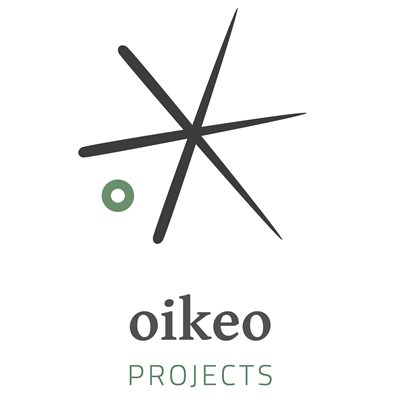

16.02.2016
„Valparaiso, how absurd you are... you haven‘t combed your hair, you‘ve never had time to get dressed, life has always surprised you“ (Pablo Neruda). So wie es der Poet und Maler Neruda ausdrückt erleben auch wir diese Stadt, die seit Jahrhunderten Künstler, Poeten und Philosophen anzieht.
Eine abenteuerliche Mischung aus alten und neuen Häusern in allen denkbaren Stilrichtungen zieht sich über die vielen Hügel Valparaisos hinauf. Verbindend ist, dass alle schon mal bessere Tage gesehen haben. Bröckelnde Fassaden, abblätternde Farbe, viel Blech. Irgendwann einmal hat die Stadt aufgegeben, gegen Sprayereien zu kämpfen und hat sich stattdessen mit deren Urhebern verbündet. Heute sind ganze Strassenzüge bemalt und besprayt, mal komisch, mal kritisch, mal poetisch. Ähnlich wie die allzeit präsenten Kunstwerke ist die Musik: An jeder Ecke sitzt oder steht jemand mit einem Instrument, scheinbar spontan ergeben sich manchmal kleine Jamsessions an vielfrequentierten Plätzen. Sogar der Gaslieferant ist musikalisch: Jeden Tag fährt das Gaslieferwägeli durchs Quartier und um auf sich aufmerksam zu machen, trommelt der Angestellte auf den Gasflaschen herum als gäb‘s kein Morgen. Aus offenen Fenstern erklingen Lieder aus der Vergangenheit, als sei mit zunehmendem Zerfall der Häuser auch der Musikstil einfach stehen geblieben. Allgemein wird Altes hier wertgeschätzt, das gefällt uns.
Und überall liegt ein Hund. Und zwar immer dort, wo er am meisten stört: Längs über den gesamten Gehsteig ausgestreckt, auf Treppenstufen, friedlich schlummernd, nur ab und zu mit dem Ohr zuckend und sich von nichts stören lassend. Leider sind auch ihre Hinterlassenschaften allgegenwärtig und man muss aufpassen, wo man hintritt. Valparaiso ist keine saubere Stadt, sie ist nicht herausgeputzt - eben, ungekämmt. Und doch schön.
15 „Ascensores“ (Lifte), der erste 1883 gebaut, bringen einen bequem die steilsten Passagen hinauf. Oft ist es nur ein unscheinbares Schild, das auf einen Ascensor aufmerksam macht. Eine Seitengasse, eine kleine Rampe, dann ein Räumchen, wo man sich durch ein knatterndes Drehkreuz schiebt, 100 Pesos abgibt (ca. 15 Rappen) und dann Einlass bekommt in die enge Liftkabine mit Fenster auf alle Seiten. Ein schrilles Läuten, dann setzt sich der Lift knarrend in Bewegung. Bei diesem Geräusch und dem Anblick des steilen Gefälls hält man Instinktiv den Atem an und hofft, dass dieses rumpelnde Gefährt nicht gerade ausgerechnet jetzt in seine Einzelteile zerfällt. Ein Aufatmen dann oben und gleichzeitig die kindliche Aufregung und das Bedürfnis: „Schnell! Nochmals! Nochmals!“, das einem schnurstracks zum nächsten Lift bringt.
Ja, ihr ahnt es bereits, uns wird es hier nicht langweilig. Der enorm kreative Puls dieser Stadt, der gleichzeitig kombiniert ist mit einer Natürlichkeit und Unaufgeregtheit, die einem sofort ein völlig relaxtes Lebensgefühl vermitteln, ist bestechend. Die Stadt ist schlicht ein einziges grosses Kunstwerk. Dieser Meinung war auch die UNESCO, die 2003 die Stadt zum Weltkulturerbe ernannte.
Valparaiso ist aber auch eine Hafenstadt. Und dies ist der eigentliche Grund, warum wir hier sind. Der Moment ist gekommen, wir verabschieden uns von unserem so zuverlässigen und anspruchslosen Motorrad. Über die nächsten Wochen wird die Transalp über den Atlantik schippern und im Frühling in Hamburg ankommen. An einem Morgen nehmen wir die letzten bürokratischen Hürden, die so tief sind wie noch fast nie, dann fahren wir zum Lagerhaus. Es ist ja beileibe nicht das erste Mal, dass wir unser Eseli abgeben und doch wird uns die kommenden Tage immer etwas fehlen. In der Lagerhalle stehen jedoch schon rund 10 andere Motorräder, jedes mit sichtbaren Spuren langer Reisen. Könnten Motorräder sprechen, gäbe das ein ziemliches Geschnatter im Container...!
Eine ganze Woche verbringen wir in Valparaiso. Wir mieten ein kleines schönes Apartement, wo wir uns Schritt für Schritt umgewöhnen: Eine Küche zur Verfügung haben (4 - in Worten: VIER - Herdplatten!), einen Kühlschrank, gemeinsam an einem Tisch sitzen, etc. Einzig nachts legt sich die Stille so ungewohnt bleiern um uns, dass wir immer wieder verwirrt aufwachen. Zu fest haben wir uns an den nächtlichen Klangteppich der Natur gewöhnt - an den Wind, das Rauschen der Bäume, das Zirpen der Grillen und morgens das erste frühe Vogelgezwitscher im Dunkeln.
Bei der Flugbuchung haben wir eher auf Preis als auf Bequemlichkeit geschaut, so sind die Verbindungen nicht gerade die besten. Doch es spielt uns keine Rolle, die Situation des Heimreisens ist eh so aussergewöhnlich, dass wir Wartezeiten und lange Flüge getrost mit Erinnerungen füllen können. So sind wir fast zwei volle Tage unterwegs. Wir sind verknittert vom langen Flug, die Stimme des Piloten klingt abgespannt und das Makeup der Flugbegleiterinnen wirkt seltsam verrutscht, als wir am Donnerstagmorgen durch eine dicke Wolkendecke stechen und in München erstmals wieder europäischen Boden unter die Füsse nehmen. Später warten in Bern unsere Familien mit einem herrlichen Apéro auf uns - vielen Dank ihr Lieben!
Unspektakulär fühlt es sich an, heimzukommen. Wir ziehen die vertraute Sprache an wie einen alten, tröstlich anschmiegsamen Pullover und erst in den darauf folgenden Tagen stellen wir fest, dass sich auch in diesem über die 10 Monate ein paar kratzende Stellen und lose Maschen gebildet haben. So ist das „Hola“ immer noch das erste, was als Begrüssung herauspurzelt und noch immer braucht es einige Momente bis wir realisieren, dass wir nicht mehr mühsam Sätzli zusammenklauben, sondern einfach darauf losplappern können. So kommt Stück für Stück der Alltag zurück, auch wenn klar ist, dass wir verändert zurückgekommen sind - ja, wir sind nicht mehr die Selben. Gedanken dazu findet ihr in unserem Rückblick, den ihr in den nächsten Tagen (oder Wochen) hier lesen könnt.
Vorerst bleibt uns, euch allen herzlich zu danken, dass ihr lesend mitgereist seid. Wir hoffen, euch mit unseren Berichten und Fotos einen kleinen Einblick in diese Reise gegeben zu haben!
„Valparaiso, how absurd you are... you haven‘t combed your hair, you‘ve never had time to get dressed, life has always surprised you“ (Pablo Neruda). Just as the poet and painter Neruda puts it, we also experience this city, which has attracted artists, poets and philosophers for centuries.
An adventurous mixture of old and new houses in every conceivable style stretches up over the many hills of Valparaiso. What connects them is that every one of them has seen better days. Crumbling facades, peeling paint, a lot of sheet metal. At some point the city gave up fighting against illegal spraying and instead allied itself with its creators. Today whole streets are painted and sprayed, sometimes funny, sometimes critical, sometimes poetic. The music is similar to the always-present works of art: someone is sitting or standing at every corner with an instrument, and small jam sessions sometimes appear spontaneously in busy places. Even the gas supplier is musical: every day the gas delivery truck drives through the neighborhood and to draw attention to himself, the employee drums on the gas bottles like there's no tomorrow. Songs from the past can be heard from open windows, as if the style of music had simply stopped with the increasing decay of the houses. In general, the old is valued here, which we like.
And there are dogs everywhere. Usually they lie where it bothers you the most: stretched out along the entire sidewalk, on stairs, slumbering peacefully, only twitching their ears now and then and not being bothered by anything. Unfortunately, their legacies are omnipresent and you have to be careful where you step. Valparaiso is not a clean city, it is not dressed up - like said, it is uncombed. And yet beautiful.
15 “Ascensores” (lifts), the first built in 1883, bring you comfortably up the steepest passages. Often it is just an inconspicuous sign that draws attention to an ascensor. A side street, a small ramp, then a room where you push your way through a rattling turnstile, hand over 100 pesos (approx. 15 cents) and then get access to the narrow elevator cabin with windows on all sides. A high-pitched ring, then the elevator starts creaking. At this noise and the sight of the steep incline, you instinctively hold your breath and hope that this rumbling vehicle doesn't fall apart into a million parts at this very moment. Then a sigh of relief and at the same time the childlike excitement and the need: “Quick! Again! Again!” which takes you straight to the next lift.
Yes, you already guessed it, we won't get bored here. The enormously creative pulse of this city, which is combined at the same time with a naturalness and calmness that immediately convey a completely relaxed attitude towards life, is captivating. The city is simply one great work of art. This was also the opinion of UNESCO, which named the city a World Heritage Site in 2003.
But Valparaiso is also a port city. And that's the real reason why we're here. The moment has come, we say goodbye to our so reliable and undemanding motorcycle. Over the next few weeks, the Transalp will sail across the Atlantic and arrive in Hamburg in spring. One morning we take the last bureaucratic hurdles that are as low as never before, then we drive to the warehouse. It is by no means the first time that we give up our donkey and yet we will always miss something in the coming days. However, there are already around 10 other motorcycles in the warehouse, each with visible traces of long journeys. If motorbikes could speak, there would be quite a chatter in the container ...!
We spend a whole week in Valparaiso. We rent a small, beautiful apartment, where we get used to a civilized life again, step by step: a kitchen is available (4 - in words: FOUR - hotplates!), a refrigerator, sitting together at a table, etc. Only at night the silence envelopes us in a surreal way, so that we keep waking up confused. We have gotten used so much to the nocturnal soundscape of nature - to the wind, the rustling of the trees, the chirping of the crickets and the first early birds singing in the dark in the morning.
When booking a flight, we valued price over convenience, so the connections are not exactly the best. But it doesn't matter to us, the situation of the journey home is anyway so extraordinary that we can confidently fill waiting times and long flights with memories. We are traveling for almost two full days. We are wrinkled from the long flight, the pilot's voice sounds strained and the make-up of the flight attendants seems strangely blurred when we poke through a thick cloud cover on Thursday morning and step foot on European soil for the first time in Munich. Later, our families are waiting for us in Bern with a wonderful aperitif - thank you very much, everyone!
It feels unspectacular to come home. We put on the familiar language like an old, comfortably cuddly sweater and only in the following days do we notice that a few scratches and loose stitches have formed over the last 10 months. So the "Hola" is still the first thing that comes tumbling out as a greeting and it still takes a few moments until we realize that we do no longer have to laboriously piece together sentences, but can simply babble in our own language. So everyday life comes back bit by bit, even if it is clear that we have come back changed - yes, we are no longer the same. You can find thoughts on this in our review, which you can read here soon.
For now, it remains for us to thank you all sincerely for traveling with us. We hope you enjoyed it!
